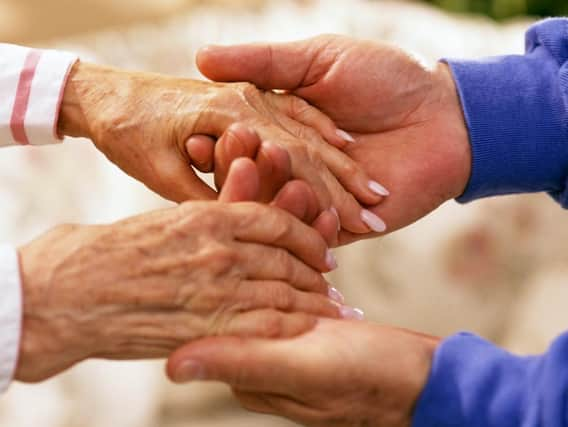Female pensioners in Northampton are thousands of pounds worse off than male counterparts


Female pensioners are thousands of pounds worse off on average than their male counterparts in Northampton, exclusive figures on the pension pay gap obtained by this newspaper can reveal.
The findings nationwide have prompted concerns that not enough has been done to address economic penalties faced by women who shoulder the lion’s share of unpaid care work – leaving them more vulnerable to poverty in old age.
Advertisement
Hide AdAdvertisement
Hide AdData provided by HMRC through a Freedom of Information Act request by the owners of this newspaper, National World, shows there is a 14.3% pay gap between men and women of state pension age in Northampton.
The statistics count men and women aged 65 and three months as of 5 April 2019 to be at pension age.
The median income for women was £14,400 in the 2018-19 tax year, the most recent period covered by HMRC’s data collections. Only income from pensions, whether private or state, is included.
That was £2,200 less than men’s average income of £16,600. The median is a measure of the average that takes the middle point, to minimise the impact of very low or high incomes.
Advertisement
Hide AdAdvertisement
Hide AdSo, for every £1 received by a men in their pension, a woman received 87p.
Nationally, the median income for women was £15,400 in the 2018-19 tax year, the most recent period covered by HMRC’s data collections. Only income from pensions, whether private or state, is included.
That was £2,600 less than men’s average income of £18,000. The median is a measure of the average that takes the middle point, to minimise the impact of very low or high incomes.
Separate figures from the Department for Work and Pensions (DWP) suggest female pensioners are more likely to be on low incomes.
Advertisement
Hide AdAdvertisement
Hide AdWomen’s groups say the gap is down to women being more likely to do unpaid care and working part-time or low-paid jobs throughout their lives – particularly for the generations that are now pensioners.
"Women who are receiving their pensions now have experienced a lifetime of the gender pay gap, meaning that the earnings they have had available to build a pension have been lower than men,” said the Fawcett Society’s Andrew Bazeley.
The amount of state pension people receive depends on when they were born and how many years they have spent paying National Insurance (NI) contributions.
Prior to changes introduced in April 2016, between 30 and 44 years’ of contributions were needed to claim the full basic state pension of £137.60 per week – roughly £7,155 per year.
Advertisement
Hide AdAdvertisement
Hide AdFewer contributing years means less state pension awarded, while under the new system claimants must have contributed at least 10 years to get any state pension at all.
But the Fawcett Society, which campaigns for gender equality, says the Government should introduce a ‘carer’s credit’ to the pension auto enrolment, so that people continue to build up a pension when they take time off to do unpaid care.
READ MORE: